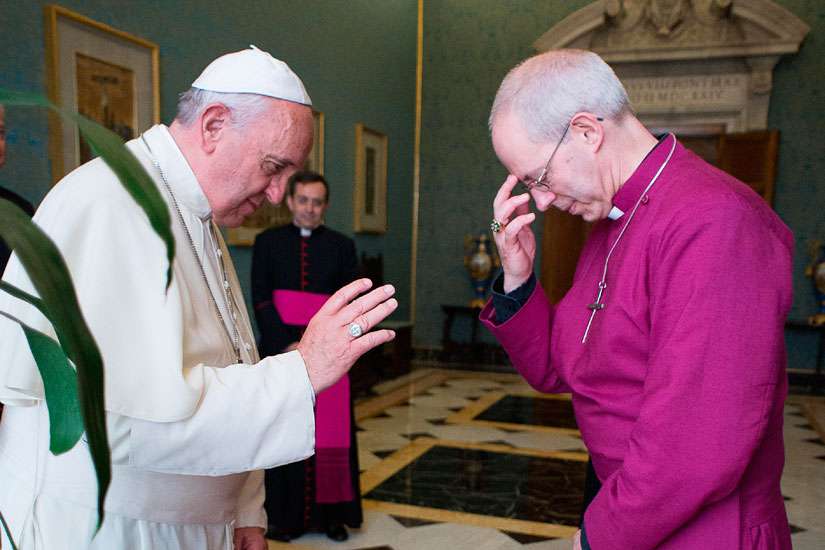Justin Welby, the archbishop of Canterbury, drew headlines this week after he floated a proposal to invite all 38 national church heads of the Anglican Communion to explore how Anglicans can stay together while going their separate ways when it comes to dealing with two of the most explosive issues facing the Christian world: inclusion of LGBT people and the ordination of women.
Welby’s proposal would allow the communion to maintain relations with liberal churches of North America that recognize and encourage gay marriage and with the mainly African churches, led by Kenya, Uganda and Nigeria, that strenuously oppose any efforts at gay inclusion. Both will then be able to call themselves “Anglican” under the proposal.
Asked whether this represented a divorce or a separation, an unnamed source at the archbishop’s office told The Guardian: “It’s more like (a couple) sleeping in separate bedrooms.”
One element of Welby’s proposal is to ask the Anglican Church in North America, a breakaway group from the Episcopal Church, USA, to attend the meeting in January — but not as a full member.
Welby’s call for a make-or-break summit dominated the pages of several newspapers, radio and TV news bulletins in Britain, where the response was mostly welcoming.
The Rev. Sally Hitchiner, a prominent gay priest in the Church of England, told The Guardian: “This is a positive move for all sort of reasons. We can’t hold together from a place like England where an archbishop of Canterbury could be in a gay marriage possibly in my lifetime, to somewhere like Uganda, where they want to imprison people for gay sex.”
In Africa, responses were more muted.
“We will be seeking to know what he means by a more loose organization,” said Anglican Bishop Joseph Kanuku of Machakos, Kenya. “For us, the Bible should be the compass and the pilot guiding the ideology of any new structure formed.”
Bishop Julius Kalu of Kenya’s Mombasa Diocese said: “I don’t think this will solve the problems of the communion. The Anglican Communion is such an old organization, that may not be easy to replace. We know even before the emergence of the disputes over homosexuality, the communion was a loose union of dioceses and provinces. It is still. We have been united in diversity.”
There is concern that if the African churches decide to withdraw altogether from the Anglican Communion, they will pressure conservative churches within the Church of England to align with GAFCON, the so-called Global Anglican Future Conference, as a kind of rival to the communion. With 80 million members, the Anglican Communion is currently the world’s third-largest Christian body.
Uganda Archbishop Stanley Ntagali said he received the invitation but was still studying its contents.
“I am still consulting with my colleagues in GAFCON,” he said. “I will be giving a response in the due course.”
At the 2008 Lambeth Conference, the Anglican Communion’s 10-year meeting, nearly 250 out of the 800 invitees stayed away.
Welby had previously announced the indefinite postponement of the next Lambeth Conference.
In an interview with the BBC’s Radio Four, David Walker, the bishop of Manchester, said Welby has met most of the world’s national church heads in recent years, so no one should be surprised that he called a meeting to discuss the future of the Anglican Communion.
“I think most will come,” he said. “It isn’t just about sexuality. There will be other issues on the agenda.”
Walker acknowledged that Welby is taking a big risk bringing so many prelates together. But he added: “This is about finding a way forward for the Anglican Communion. I think we can find a good solution.”


